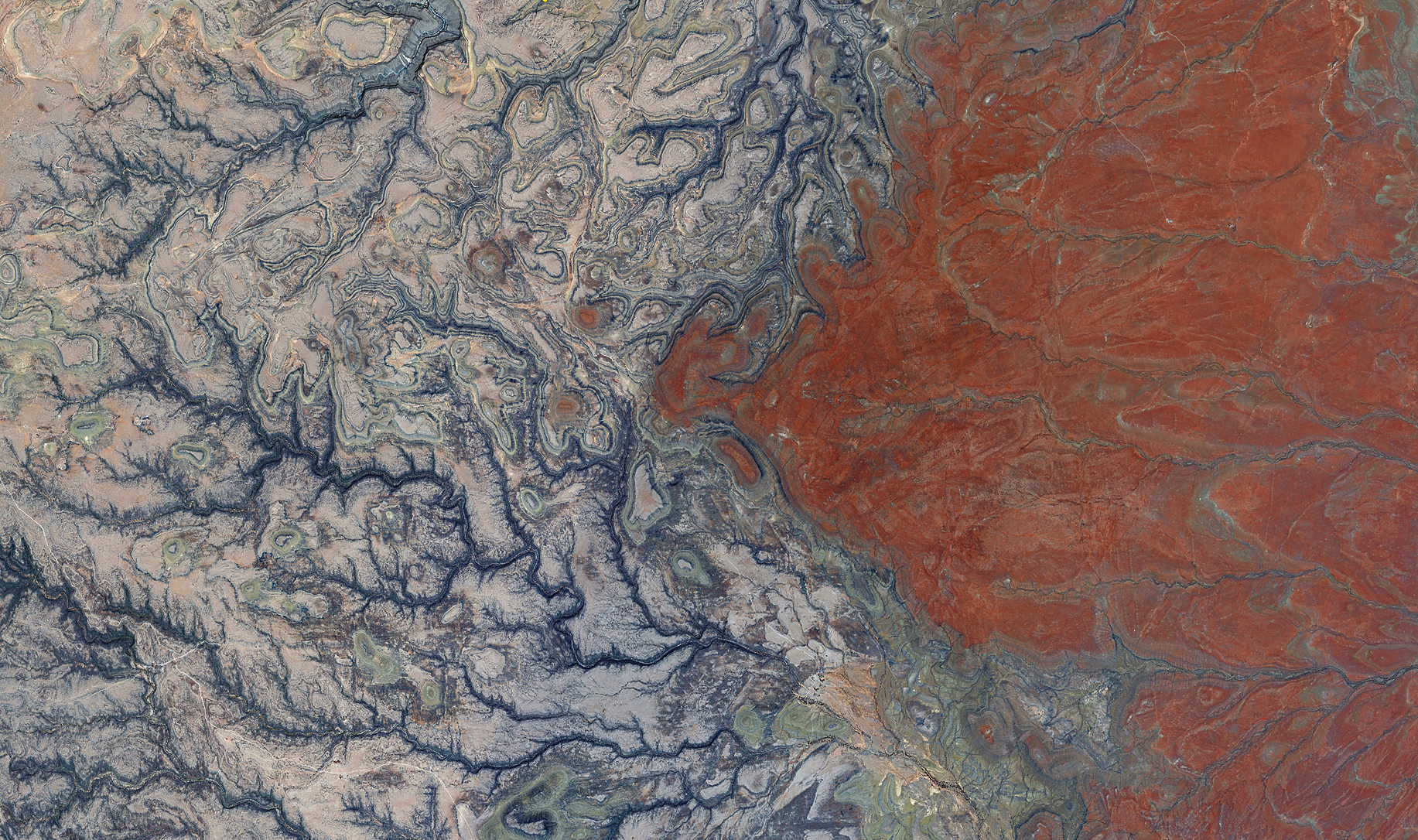
Altitude 24,100 m
Having endured arid or semi-arid conditions for roughly 55–80 million years, the Namib may be the oldest desert in the world and contains some of the world's driest regions, with only western South America's Atacama Desert to challenge it for age and aridity benchmarks.
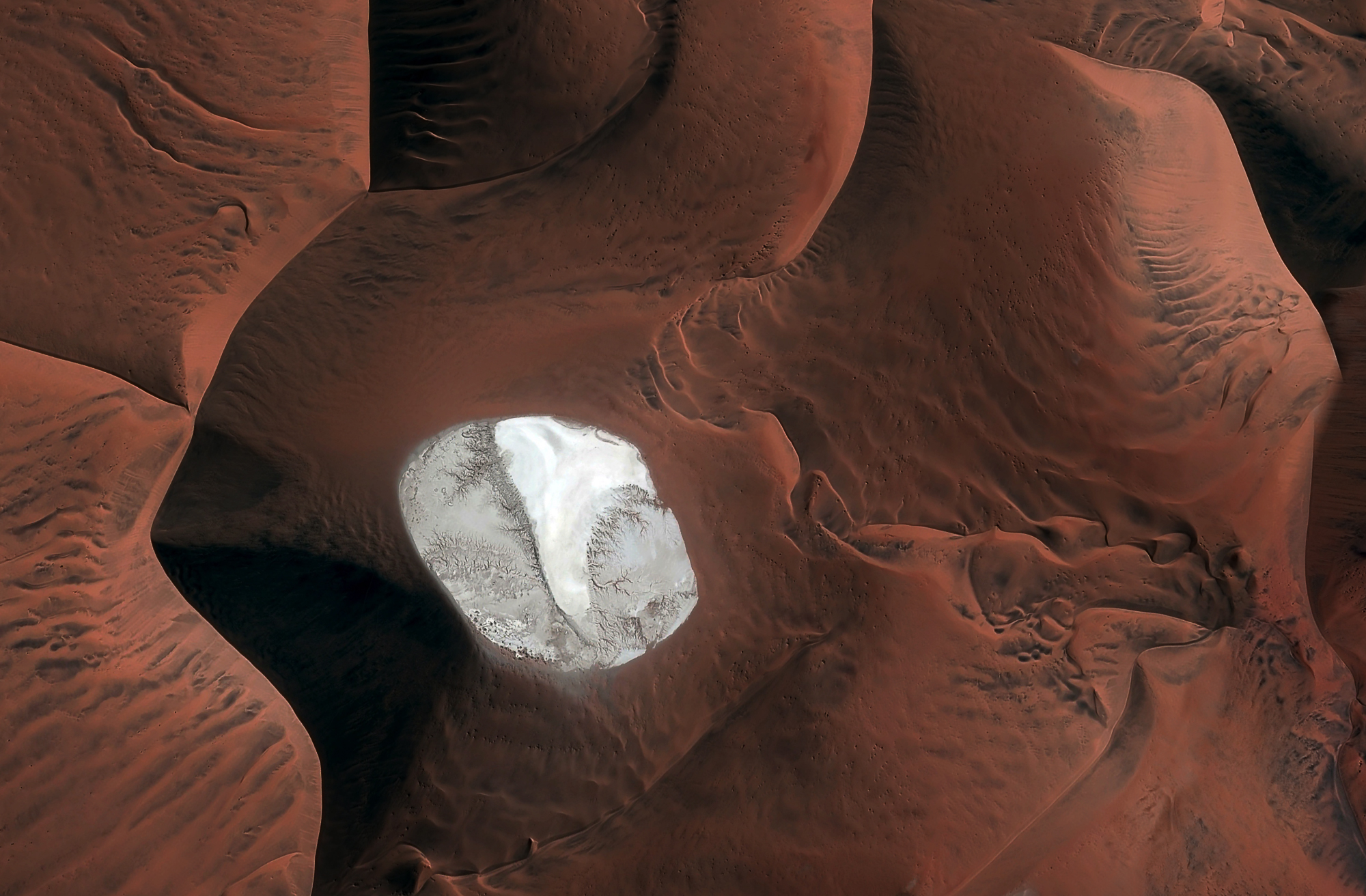
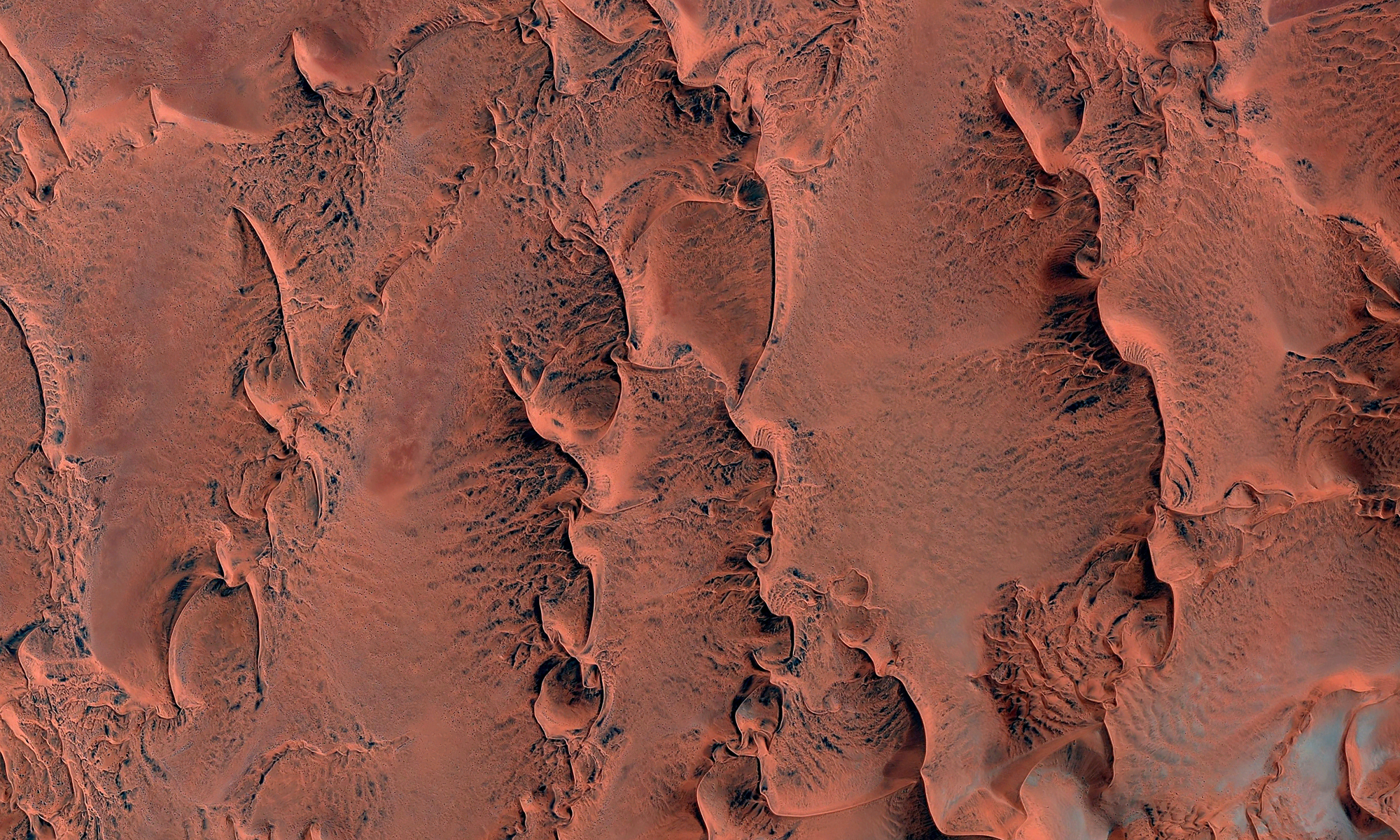
The sand dunes, some of which are 300 metres (980 ft) high and span 32 kilometres (20 mi) long, are the second largest in the world. Fogs that originate offshore from the collision of the cold Benguela Current and warm air from the Hadley Cell create a fog belt that frequently envelops parts of the desert. Coastal regions can experience more than 180 days of thick fog a year. While this has proved a major hazard to ships—more than a thousand wrecks litter the Skeleton Coast—it is a vital source of moisture for desert life.
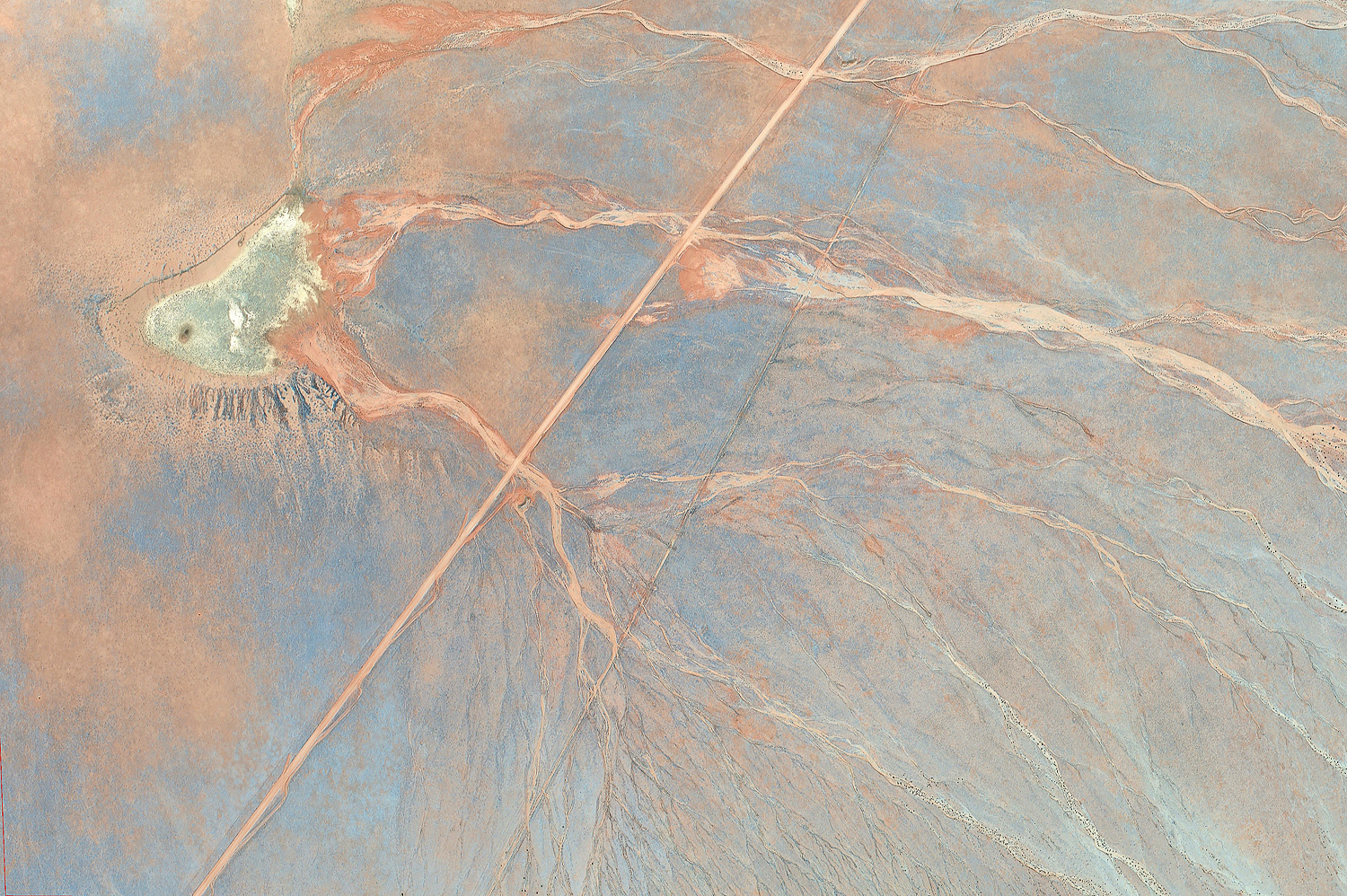
Altitude 2,600 m
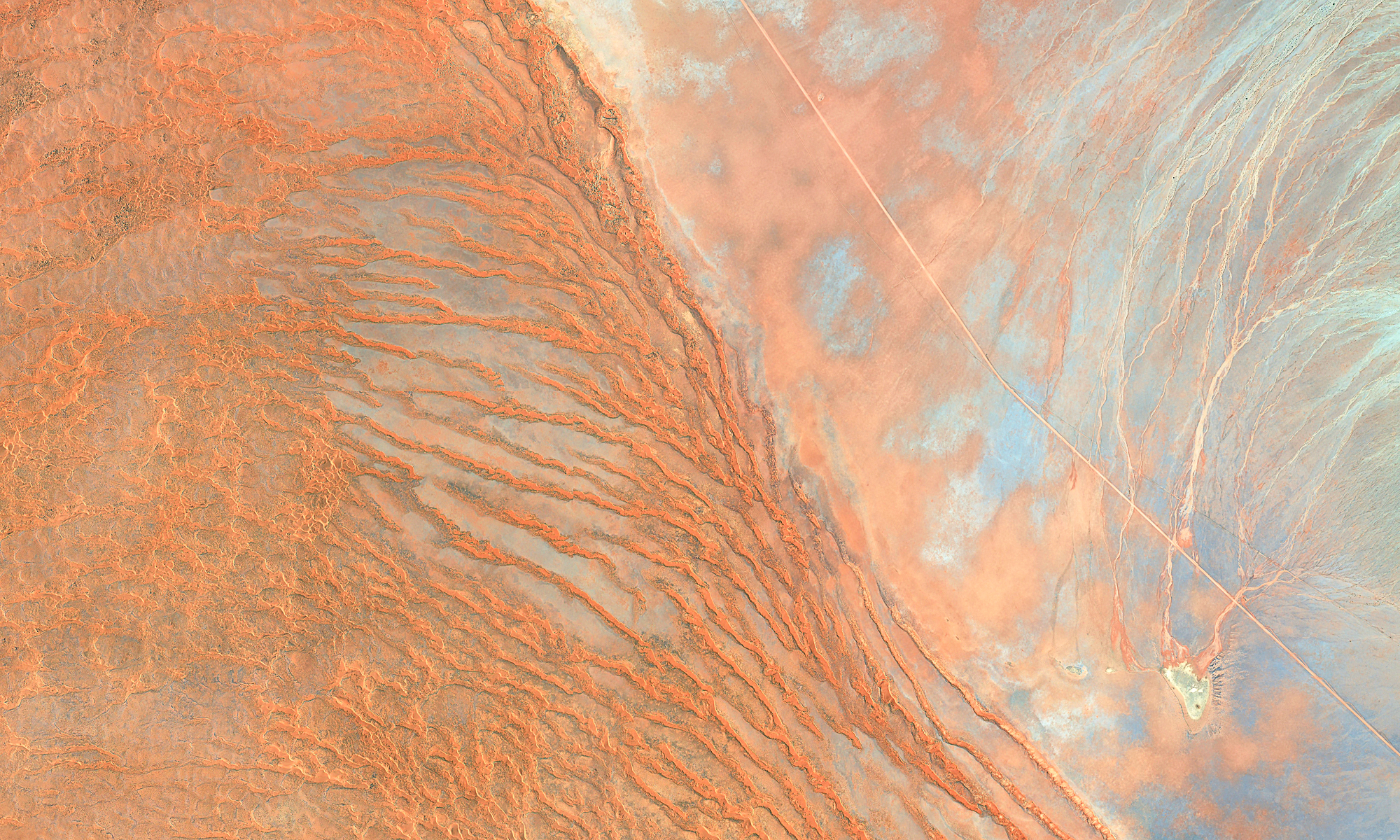
Altitude 9,800m
The Namib-Naukluft National Park, that extends over a large part of the Namib Desert, is the largest game reserve in Africa and one of the largest of the world. While most of the park is hardly accessible, several well-known visitor attractions are found in the desert. The prominent attraction is the famous Sossusvlei area, where high orange sand dunes surround vivid white salt pans, creating a fascinating landscape. Access to the park is either by gravel roads or dust roads (except for 60 km of concrete road from the Sesriem gate to Sossusvlei) or by light aircraft from Windhoek (the capital of Namibia, about 480 km (300 mi) north-east of the centre of the desert), or Swakopmund and Walvis Bay at the north end of the desert.
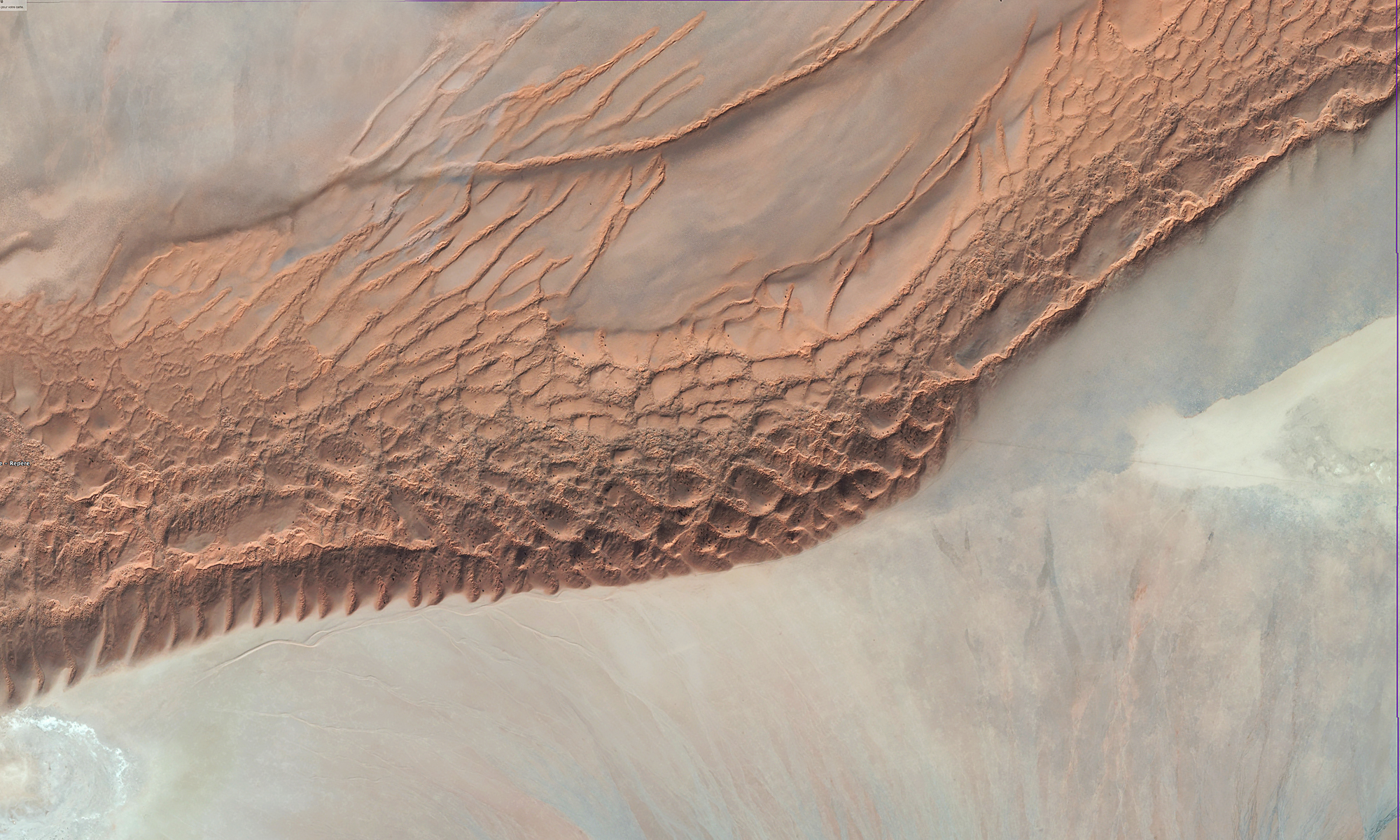
Altitude 9,600 m
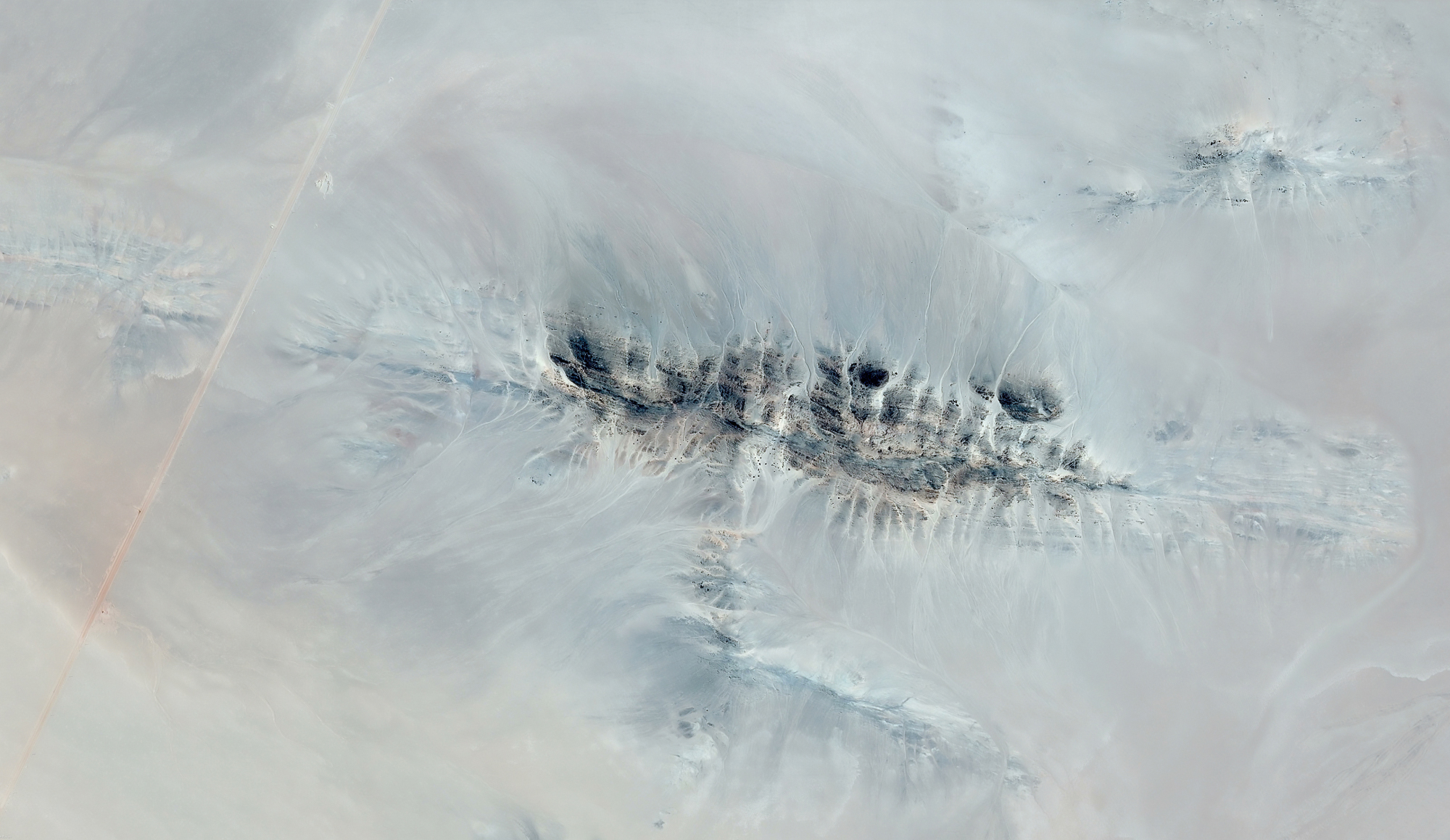
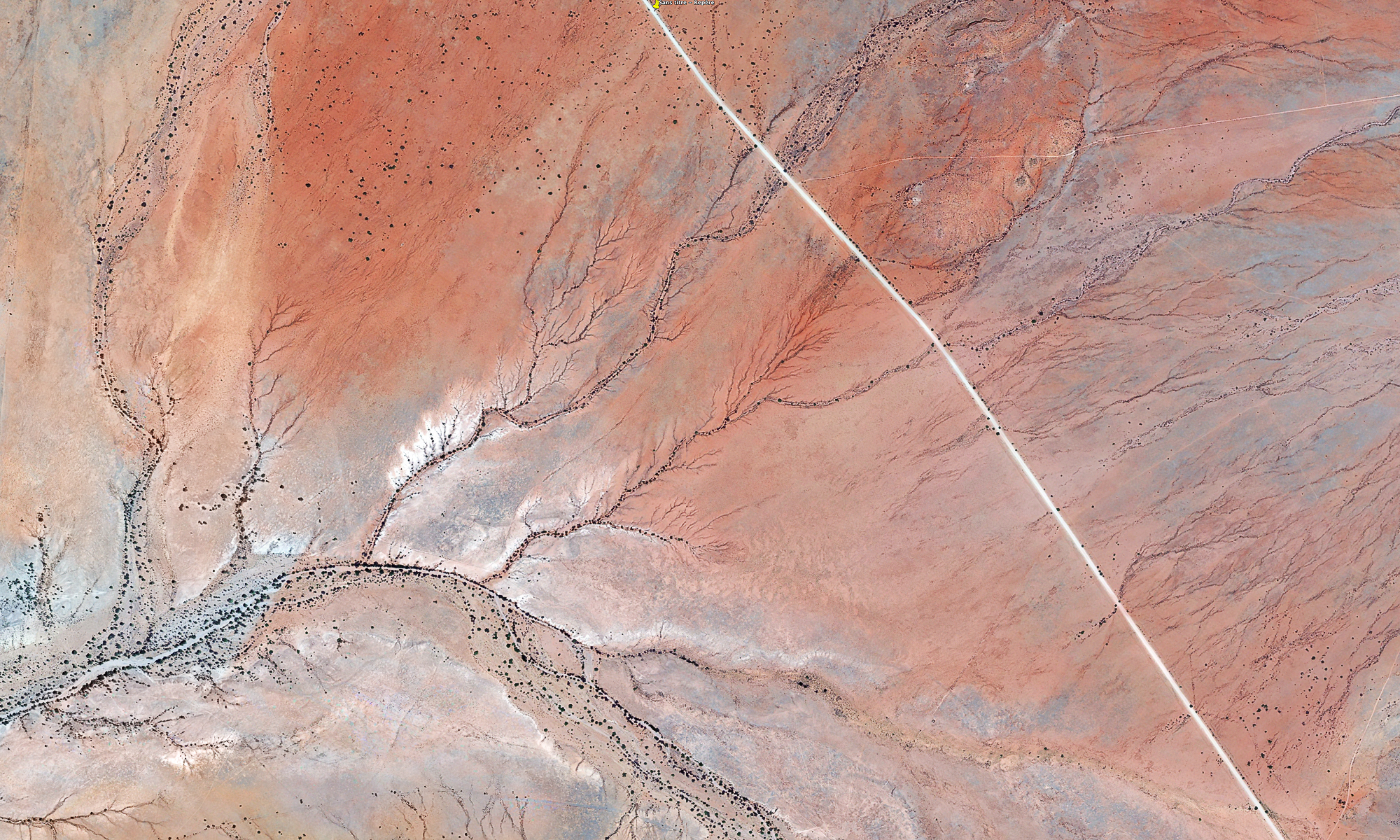
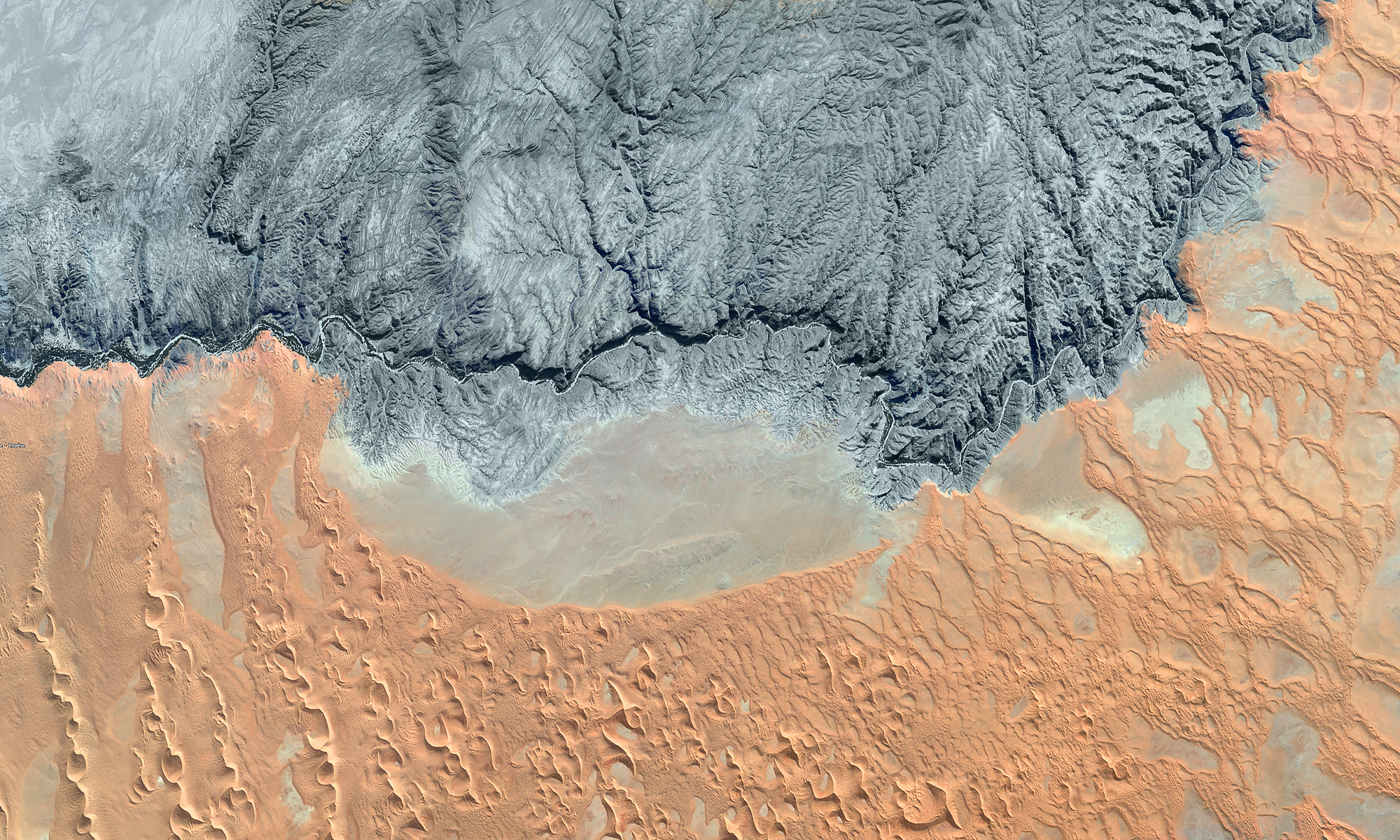
Images from Digital Globe / Google Earth - Text from Wikipedia https://en.wikipedia.org/wiki/Namib

